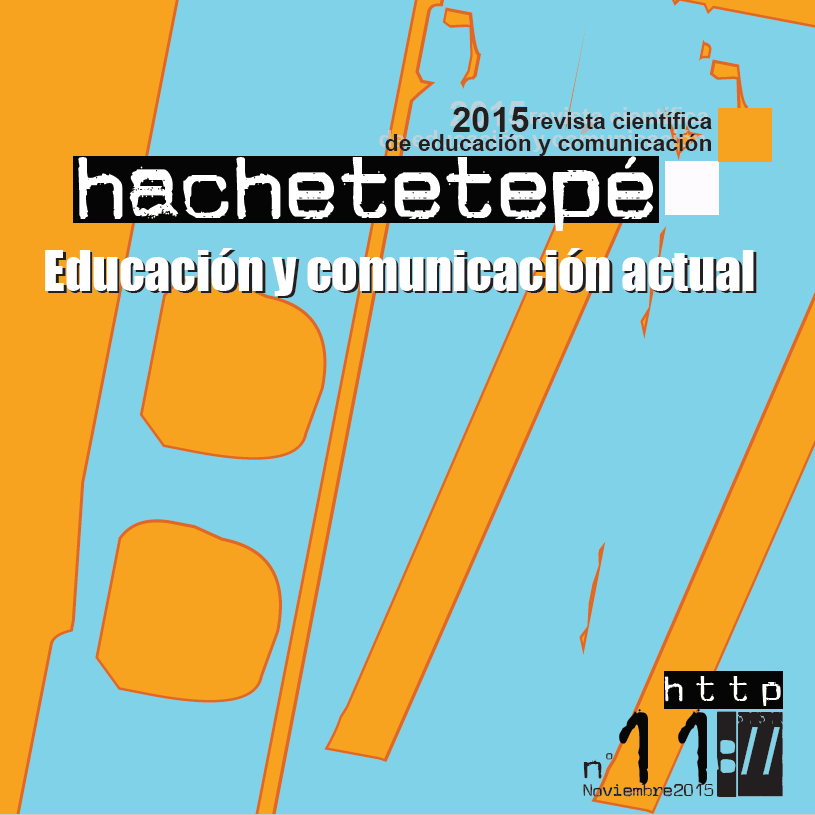El aprendizaje electrónico móvil: entre la oportunidad y el riesgo. Una reflexión crítica

DOI
https://doi.org/10.25267/Hachetetepe.2015.v2.i11.10Informação
Resumo
Muchas veces se concibe la introducción de tecnologías digitales en las instituciones educativas de forma acrítica, como una panacea en grado de mejorar por sí misma las prácticas y potenciar el rendimiento. Tales expectativas se fundan en una visión que considera las tecnologías como un factor autónomo y aislado, independientemente de las actividades para las cuales se emplean, de su significado y de las expectativas que el usuario les atribuye, además de las relaciones sociales y los contextos culturales y organizativos en las cuales son introducidas y utilizadas. El riesgo que se presenta para las tecnologías de aprendizaje electrónico móvil (m-Learning) es que sean objeto de la misma parcialidad interpretativa. La finalidad de nuestro artículo es presentar las aplicaciones de las mencionadas tecnologías, así como sus perspectivas de desarrollo.
Palavras-chave
Downloads
Como Citar
Licença

Este trabalho está licenciado sob uma licença Creative Commons Attribution-NonCommercial-NoDerivatives 4.0 International License.
Os autores que publicaram com esta revista, aceitam os seguintes termos:
1. Manterão seus direitos autorais e garantirão à revista o direito à primeira publicação de seu trabalho, que estará simultaneamente sujeita à Licença de Atribuição Creative Commons. Podem ser copiados, utilizados, divulgados, transmitidos e exibidos publicamente, desde que a autoria, url e revista sejam citados, e não sejam utilizados para fins comerciais. Nenhuma obra derivada é permitida.
2. Podem adotar outros contratos de licença não exclusiva para a distribuição da versão publicada da obra (por exemplo, depositá-la em arquivo telemático institucional ou publicá-la em volume monográfico), desde que seja indicada a publicação inicial nesta revista.
3. Divulgue seu trabalho pela Internet (por exemplo, em arquivos telemáticos institucionais ou em seu site) uma vez que o manuscrito seja aceito, o que pode levar a trocas interessantes e ao aumento das citações do trabalho publicado. (Veja O efeito do acesso aberto).
Hachetetepé. A revista científica de educação e comunicação não cobra taxa pela submissão de manuscritos ou pela publicação de seus artigos.
Referências
Cheon, J., Lee, S., Crooks, S. M. and Song, J. (2012). An Investigation of Mobile Learning Readiness in Higher Education Based on the Theory of Planned Behaviour. Computers & Education, 59 (3); 1054-1064.
Cowen, T. (2013). Average is Over. Powering America Beyond the Age of the Great Stagnation. New York: Dutton (trad. it. La media non conta più. Ipermeritocrazia e futuro del lavoro). Milán: Università Bocconi Editore.
Goodfellow, R. and Lea, M. R. (Eds.) (2013). Literacy in the Digital University. Critical Perspectives on Learning, Scholarship and Technology. Londres y Nueva York: Routledge.
Kearney, M., Schuck, S., Burden, K. and Aubusson, P. (2012). Viewing Mobile Learning from a Pedagogical Perspective. Research in Learning Technology, 20 (1); 1-17.
Kukulska-Hulme, A. (2005). Mobile Usability and User Experience, en Kukulska-Hulme, A. and
Traxler, J. (Eds.). Mobile learning: A Handbook for Educators and Trainers. Londres: Routledge; 45–56.
Kynäslahti, H. (2003). In Search of Elements of Mobility in Context of Education, en Kynäslahti, H. and Seppälä (Eds.). Mobile Learning, Helsinki. IT Press; 41-48.
Livingstone, S. (2012). Critical Reflections on the Benefits of ICT in Education. Oxford Review of Education, 38(1); 9-24.
Orton-Johnson K. and Prior, N. (Eds.) (2013). Digital Sociology. Critical Perspectives, Houndmills, Basingstoke. Hampshire y Nueva York: Palgrave Macmillan.
Rainie, L. and Wellman, B. (2012). Networked. The New Social Operating System. Cambridge, MA: The MIT Press.
Lupton, D. (2015). Digital Sociology. Londres y Nueva York: Routledge.
Pachler, N. (2009). Research Methods in Mobile and Informal Learning: Some Issues, en Vavoula, G.,
Pachler, N. and Kukulska-Hulme, A. (Eds.). Researching Mobile Learning: Frameworks, Tools and
Research Designs. Oxford: Peter Lang Publishing; 1–15.
Peters, J. D. (2015). The Marvelous Clouds. Toward a Philosophy of Elemental Media. Chicago: University of Chicago Press.
Selwyn, N. (2011). Education and Technology. Key Issues and Debates. Londres y Nueva York: Continuum.
Selwyn, N. (2014). Digital Technology and the Contemporary University. Degrees of digitalization. Londres y Nueva York: Routledge.
Sharples, M., Arnedillo-Sánchez, I., Milrad, M., & Vavoula, G. (2009). Mobile learning: Small devices, big issues, en Ludvigsen, S., Balacheff, N., Jong, T. D., Lazonder, A., and Barnes, S. (Eds.). Technology-enhanced Learning: Principles and Products. Berlin: Springer-Verlag; 233–249.
Silverstone, R. and Hirsch, E. (Eds) (1992). Consuming Tecnologies. Media and Information in Domestic Spaces. Londres: Routledge.
Turkle, S. (2011). Alone Together: Why We Expect More from Technology and Less from Each Other. Nueva York: Basic Book.
Wan, N. and Howard, N. (2013). A Framework for Sustainable Mobile Learning in Schools. British Journal of Educational Technology, Vol 44 No 5 2013; 695–715 (10-09-2015)
We are social, (2015). Digital, Social & Mobile in 2015. http://wearesocial.net/.
Wong, L-H, Milrad, M., Specht, M. (Eds.) (2015). Seamless Learning in the Age of Mobile Connectivity. Singapur, Heidelberg, Nueva York, Dordrecht y Londres: Springer.
Word Bank, (2015). Mobile cellular subscriptions (per 100 people). http://data.worldbank.org/ (10-09-2015)





